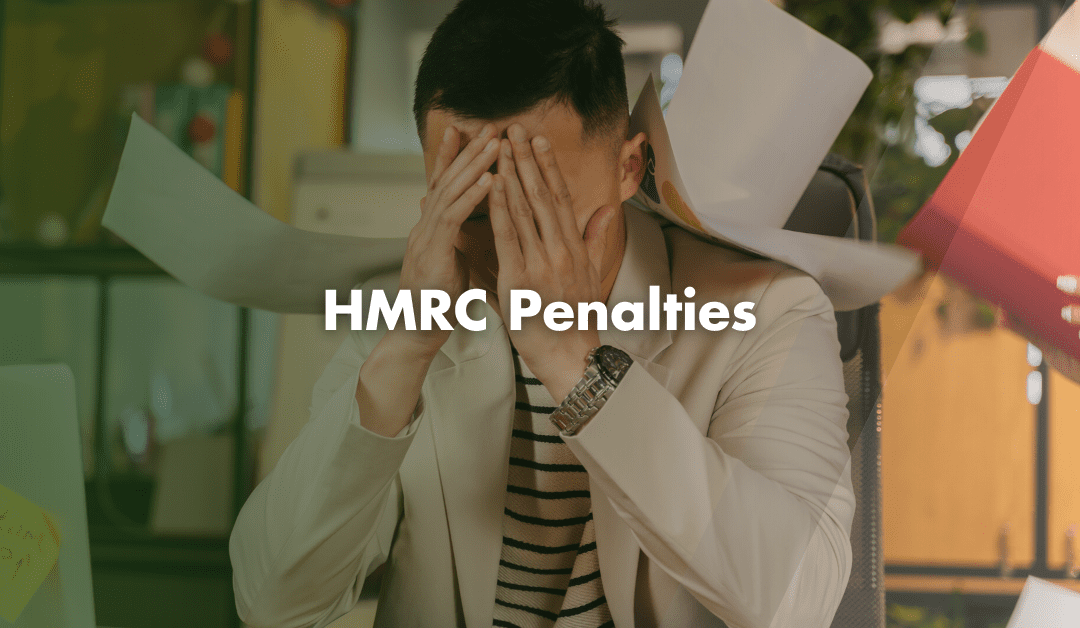What are HMRC Penalties?
HMRC imposes penalties on taxpayers who fail to comply with their tax obligations. Consequently, these penalties serve as a deterrent to non-compliance and encourage everyone to adhere to tax laws. If you don’t file your tax return on time or pay your taxes when due, you could face significant fines.
Common Types of HMRC Penalties
Deadline Penalties
- Late filing penalties apply if you miss the tax return deadline, and they increase the longer you delay.
- Initial Fixed Penalty: £100 if your tax return is up to 3 months late.
- 3 to 6 months late: £10 per day (up to a maximum of £900).
- 6 to 12 months late: Either 5% of the tax due or £300 (whichever is greater).
- More than 12 months late: Can lead to an additional penalty of 100% of the tax due, doubling your total tax bill.
- Late payment penalties occur if you miss the due date, with charges increasing over time as a percentage of the tax owed.
- 30 days late: 5% of the unpaid tax.
- 6 months late: An additional 5% of the unpaid tax.
- 12 months late: A further 5% of the unpaid tax.
- Note: HMRC may charge interest on top of these penalties.
- Non-compliance with VAT obligations can lead to severe penalties, including paying backdated VAT, which can be financially crippling for businesses.
- Failure to register for VAT on time: 5% to 15% of the VAT due (depending on how late the registration is).
- Late VAT returns: Standard late filing and payment penalties apply, as above.
- Late VAT payments: Additional surcharge based on turnover, ranging from 2% to 15%.
Carelessness Penalties
- Inaccurate tax returns can result in hefty fines, with penalties based on the percentage of tax underpaid, increasing with the severity of the inaccuracy.
- If the error is due to carelessness: 0% to 30% of the extra tax due.
- If the error is deliberate but not concealed: 20% to 70% of the extra tax due.
- If the error is deliberate and concealed: 30% to 100% of the extra tax due.
- If your circumstances change and affect your tax liability, you must notify HMRC. Failing to do so can result in fines.
- Careless failure: 0% to 30% of the tax due.
- Deliberate but not concealed: 20% to 70% of the tax due.
- Deliberate and concealed: 30% to 100% of the tax due.
Fraud Penalties
- If you deliberately try to avoid paying taxes through fraudulent means, you could face severe penalties, including criminal prosecution.
- For serious fraud: Penalties up to 100% of the tax owed.
- In extreme cases: Criminal prosecution with unlimited fines or imprisonment.
Interest Charges on Unpaid Taxes
In addition to penalties, HMRC also imposes interest charges on unpaid taxes. Moreover, HMRC sets the interest rate, which can accumulate quickly and add to your financial burden. Therefore, paying your taxes on time is the best way to avoid these additional charges.
Appealing HMRC Penalties
In some cases, you can appeal or reduce HMRC penalties.
If you have a reasonable excuse for your non-compliance, such as illness or bereavement, HMRC may consider reducing or waiving the penalty. Thus, If you believe you have a valid reason to appeal, act quickly and seek professional advice immediately.
Contact Us
We are not just accountants; we are Chartered Accountants with one of the most reputable and premium accounting bodies. We are registered and regulated by ACCA; so you can rest assured that you are in good hands. Knowing this, don’t hesitate to get in touch with us if you require assistance: Pi Accountancy | Contact Us

